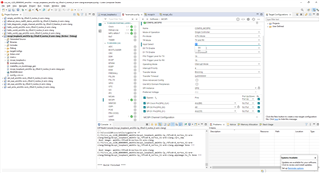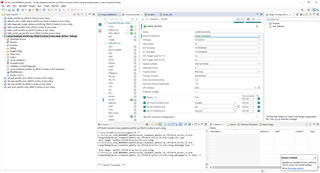- I am able to use TI’s SDK ,mcu_plus_sdk_am243x_08_06_00_45, example (mcspi_loopback) to send/receive data over SPI between two AM243x LP boards, but only this example works while other examples (i.e. mcspi_performance_8bit..) were not working at all.
- Although “mcspi_loopback” example is working but it can only use API function “MCSPI_transfer()” to send and receive SPI data between master/slave at the same time (synchronously) which is not usable in our use cases. We need either Master or Slave can send and receive SPI data at any time (asynchronously) .
- I have tried other SPI drivers (MCSPI_writeTxDataReg() and MCSPI_readRxDataReg()) to write and read SPI data respectively but not working.
- Other than MCSPI_transfer(), MCSPI_writeTxDataReg() and MCSPI_readRxDataReg() API function calls, is there any other API I can use to read and write SPI data?
- Could you provide any examples for individual Master and Slave (Peripheral) SPI devices?
Thanks.




